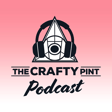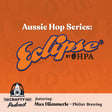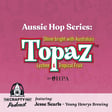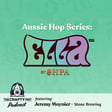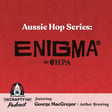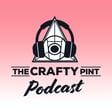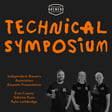
From Beer Writing To The Brewhouse: Building A Local Brewpub In NZ
In Episode 015 of The Crafty Pint Podcast we head overseas for the first time. Our destination is a tiny brewery most people won't have heard of, where we're joined by a guest with whom many will be very familiar.
The tiny brewery is Shortjaw Brewing, located in Westport: a town on the sparsely populated west coast of New Zealand's South Island. The guest is the man who, along with his partner Emma, decided to take over the site of a 30-year-old, twice-liquidated brewery during the early period of the COVID pandemic and bring it back to life.
Luke Robertson is far better known in beer circles – at least outside Westport and surrounds – from his time in Australia. This is mainly due to Ale of a Time, the blog that spawned a podcast of the same name, both of them home to sharp, witty and occasionally caustic observations of, and commentary on, the wide world of beer.
That was just one of many roles in the Australian beer world for Luke, who helped deliver major events such as Good Beer Week and BrewCon for the Independent Brewers Association, while writing – mostly on beer – for high profile publications not just in his adopted home but overseas, notably for Good Beer Hunting.
Thirty months on from pouring the first Shortjaw beer for guests, he joined us to reflect on his change of direction – or putting his money where his mouth is, as he puts it: how he's approached building a customer base for a regional brewery in one of the most remote parts of the planet, his fondness for creating beers that represent the place in which they're brewed, and some of the highs and lows that come with launching a brewery in the toughest climate for beer in decades.
The chat with Luke starts at 11:05.
Prior to that, we interrupt Will's holiday in Bali to go behind the scenes of his deep dive article into the experiences of working at beer's sinking ships. Over a period of months, he spoke to former employees at a number of businesses across Australia that have been through administration, ceased operating, or changed hands over the past couple of years, and the picture they paint is far from pretty.
We also discuss the reaction to the article since its publication on Monday, with comments received from outside Australia and beyond the beer world too.
You'll find links relevant to the episode below:
Shortjaw Brewing: https://shortjaw.co.nz/
Ale of a Time: https://aleofatime.com/
From Beer Blogger To Brewery Owner: https://craftypint.com/news/2799/from-beer-blogger-to-brewery-owner
Working Inside Beer's Sinking Ships: https://craftypint.com/news/3605/working-inside-beers-sinking-ships
Brew & A ft Charlie Claridge: https://craftypint.com/news/3609/brew-and-a-charlie-claridge-esker-beer-co
Sun Tap Decals: https://www.suntapdecals.com.au/
To find out more about supporting the show or otherwise partnering with The Crafty Pint, contact craig@craftypint.com.
